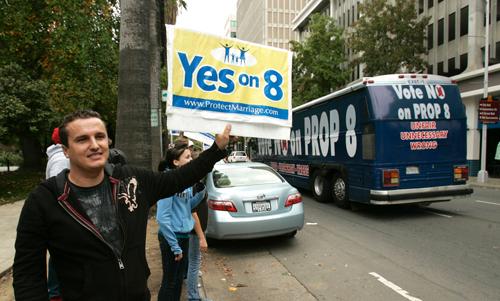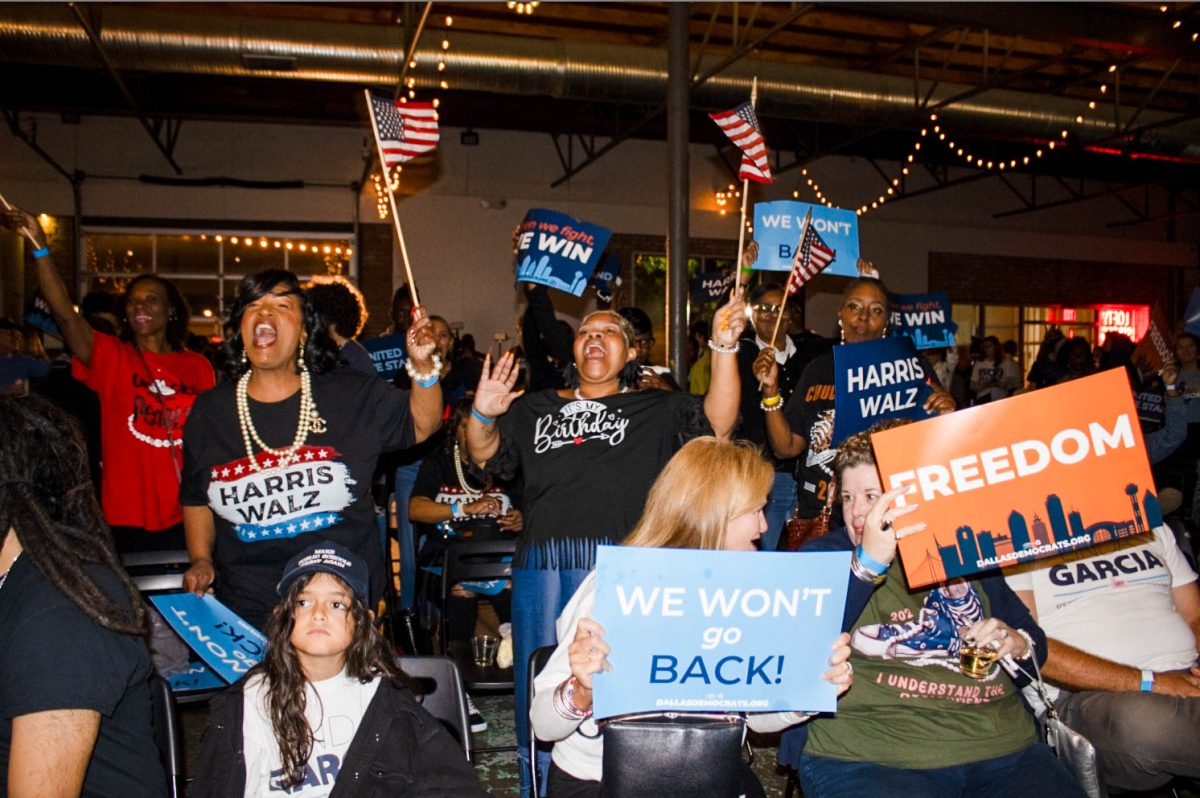
This 2008 picture taken in Sacramento, Calif. shows the opposing views on Proposition 8. (Courtesy of AP)
Arguments for and against California’s Proposition 8, the legislation that banned same-sex marriage in one of the nation’s most liberal states, were heard by the Supreme Court Tuesday.
Theodore Olson, the lawyer representing those against Prop 8, argued that marriage is a “personal right,” and not one to be decided by a court of law.
“This is a measure that walls off the institution of marriage, which is not society’s right. It’s an individual right. It’s a part of the right to privacy, association, liberty and the pursuit of happiness,” Olson said to the court.
Charles J. Cooper, a lawyer who argued in defense of Prop 8, said that same-sex marriages have adverse consequences.
“Redefining marriage will have real-world consequences and it is impossible for anyone to foresee the future accurately enough to see what those consequences will be,” Cooper said.
Justice Elena Kagan did not buy this angle on the argument, instead questioning him, “to the institution of marriage, to opposite-sex couples, how does this cause and effect work?”
The question of procreation and its perceived function in the institution of marriage is stressed by Prop 8 opponents.
“The responsibility, or ability, or interest in procreation is not a part of the right to get married,” Olson said.
Justice Anthony Kennedy also turned to the influence of the modern diversity of families, speaking on behalf of children being raised by same-sex couples.
“They want their parents to have full recognition,” Kennedy said.
At the same time, Kennedy remained unsure as to whether the Supreme Court’s right truly lies in deciding the matter surrounding Prop 8. He said earlier, “I wonder if this case was properly granted.”
“The problem with the case,” Kennedy said, “Is that you’re really asking to go into uncharted waters.”
SMU sophomore Geenah Krisht said she finds it “amazing that a simple ballot proposition has made it this far.”
“Americans can vote, can say whatever they want, publish what they want, practice whatever religion they choose, but not every American can marry the person they love?” Krisht said. “It quite frankly doesn’t make sense to me.”
Another SMU student, Ryan Patrick McLaughlin, said Tuesday’s Supreme Court hearing was a defining day in history.
“We will either have a Supreme Court that stands up for human rights or one that cowers to an ignorant precedence,” McLaughlin said.
The Supreme Court is set to hear arguments in another case related to gay marriage, the Defense of Marriage Act, Wednesday.
Rulings in both cases are not expected until June.














